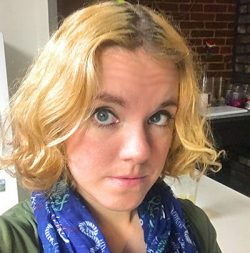Nurse Practitioner Career and Degree Guide
Related Reading
Nurse Practitioner Education Requirements

You’ll have advanced responsibility, autonomy, and earning potential as a nurse practitioner (NP). To get there, you’ll need an advanced degree—at least a Master of Science in Nursing (MSN), although the field is increasingly moving toward requiring a Doctor of Nursing Practice (DNP).
In this Article
What Degree Do You Need To Be a Nurse Practitioner?
Before you pursue a master’s or doctoral degree, you’ll need an RN-level nursing degree. You can apply to an MSN program if you already have a Bachelor of Science in Nursing (BSN). You can also apply to special MSN programs known as bridge programs if you have an Associate Degree in Nursing (ADN). In either case, you’ll need to meet the requirements of your desired MSN program. In many cases, this means you’ll need to have an active RN license in good standing. Some programs will also ask that you have some professional experience working as an RN.
Earning your MSN
A Master of Science in Nursing is designed to give you a more advanced understanding of nursing practice. You’ll go into more depth than you did in your ADN or BSN program. You’ll learn the theory behind some of the concepts you learned earlier in your education and learn new ways it can help you in your nursing role.
Your master’s program will be NP-focused, and you’ll pick a specialty right away. Your classes will prepare you to work in that role.
“Your NP program will focus on your specialty from day one,” says Sara Hunt DNP, MSN, FNP-C, PHN, a licensed family nurse practitioner who works as a health policy instructor. “Unlike medical school, where everyone obtains a generic MD or DO at the end of medical school and then enters their specialty afterwards, NPs enter straight into their specialty.”
A specialty allows you to focus on a specific type of care or age group.
There are many specialties that NPs can pursue, such as acute, adult, mental health, cardiac, and pediatric care. Once you dive into a particular field of study, you can specialize even further. For example, someone studying to be a pediatric nurse practitioner can subspecialize in diabetes care for children.
Earning your DNP
A DNP provides advanced clinical instruction. You’ll get an in-depth, doctoral education that will help you provide expert patient care, position you for supervisory roles, and potentially help you earn a higher salary. The DNP is designed for nurses who want to take their nursing education as far as they can.
The nurse practitioner field is increasingly moving toward requiring DNP degrees. In fact, the American Association of Colleges of Nursing (AACN) has been recommending the DNP degree as the standard for nurse practitioners since 2004. More recently, in 2018, the National Organization of Nurse Practitioner Faculties (NONPF) committed to DNP degrees as the entry-level standard for nurse practitioners by 2025.
What Certification and Licensing Will I Need?
Once you’ve earned your MSN or DNP in a nurse practitioner-focused program, you’re ready to take your certification exam and become certified. The American Association of Nurse Practitioners Certification Board (AANPCB) and the American Nurses Credentialing Center (ANCC) both offer nationally recognized certification exams for NPs. Your specialization will dictate which organization you can be certified by, although there is some overlap within a few specialties. There are additional certifying agencies—such as the Pediatric Nursing Certification Board (PNCB), the National Certification Corporation (NCC), and others—that offer certification to NPs who subspecialize.
Once you’ve been certified, you’ll be able to pursue a NP license in your state. NPs must renew their certification and state licenses periodically, typically by completing continuing education courses and fulfilling other requirements.
Certifications for Popular Specializations
The type of NP certification you earn will vary depending on your specialty or subspecialty. Here are examples of some popular NP specialties and the certifications you can pursue:
- Acute Care Nurse Practitioner Certification for Adult-Gerontology (ACNPC-AG), offered by the American Association of Critical-Care Nurses
- Certified Pediatric Nurse Practitioner-Acute Care (CPNP-AC), offered by the PNCB
- Adult Gerontology Acute Care Nurse Practitioner Certification (AGACNP-BC), offered by the ANCC
- Adult-Gerontology Primary Care Nurse Practitioner Certification (AGPCNP-BC), offered by the ANCC and the AANP
Adult Psychiatric-Mental Health Nurse Practitioner
- Psychiatric-Mental Health Nurse Practitioner (Across the Lifespan) Certification (PMHNP-BC), offered by the ANCC
- Family Nurse Practitioner Certification (FNP-BC), offered by the ANCC
- Family Nurse Practitioner (FNP) certification, offered by the AANPCB
Pediatric Primary Care Nurse Practitioner
- Certified Pediatric Nurse Practitioner-Primary Care (CPNP-PC), offered by the Pediatric Nursing Certification Board (PNCB)
What Will I Learn in My Nurse Practitioner Program?
Your coursework will depend on your specialty, but the focus will always be on patient care. NPs have an advanced scope of practice that allows them to take on many of the duties traditionally associated with physicians, but NPs always work from a nursing perspective.
“Nurse practitioners are trained to be holistic, (meaning they are trained to provide) for your physical, mental, spiritual, and social needs,” explains Hunt.
The course of study is all-encompassing and includes everything from physiology, pathophysiology, pharmacology, nutrition, behavioral issues, cultural issues, physical exams, minor procedures, and more, says Hunt. In other words, the focus on wellness goes beyond just treating an illness or injury.
Nurse practitioners treat the whole person; not just their illness.
“You think about things from the patient perspective and work with them as partners in health,” says Hunt. “The books, tools, and training often overlap with medical training.”
Specialty-Specific Coursework
Coursework for your specialty will provide the specific knowledge you need to work with certain patients in certain settings. For example, family NPs see patients of all ages in offices, but oncology NPs work with cancer patients in hospitals or other long-term care settings. Some examples of the varied types of classes you may take according to your specialty focus include:
Oncology Nurse Practitioner Classes
Family Nurse Practitioner Classes
Geriatric Nurse Practitioner Classes
Neonatal Nurse Practitioner Classes
How Long Does It Take To Become a Nurse Practitioner?

The length of time it takes to become a nurse practitioner depends mostly on the degree you hold when you start and the degree you are hoping to eventually earn, but between two and four years is the average.
You’ll need to hold an RN license before you can start an NP program. This means you’ll need to earn at least an associate degree or, more commonly, a bachelor’s degree. An ADN generally takes around two years, while a BSN will take around four.
It generally takes two to four years to become a nurse practitioner.
You can go straight to an MSN program as an RN with an associate degree, but this bridge program will take longer than it would to earn your MSN if you already had a BSN. Generally, you can complete an MSN in around two years, but a bridge program could take as many as three. Plus, BSN-educated nurses can take their own bridge, going straight from a BSN to a DNP with BSN-DNP programs.
If you’re looking to earn your doctorate, it can take anywhere from three to six years. The length of time will depend on your program, program structure, specialty, and more. Some DNP programs will also require extensive clinical hours, which can add to the length.
So just how long is that? It depends on where you start and which degree you want. Let’s say your goal is to work as an NP with an MSN degree, and you currently have an associate degree that took you two years to earn. If you decide to enter an RN-to-MSN bridge program that takes three years, your total time would be five years. However, let’s say you earn your BSN in four years and later decide you want to pursue a DNP. If you select a BSN-to-DNP bridge program and complete it in five years, you’d have spent nine years in school. Your education could take longer if you don’t use any bridge programs, attend school part time, or are switching from a non-nursing career.
Are Online NP Programs Available?
There are online programs available for nursing students at all levels, including students pursuing an MSN or a DNP. In many cases, you’ll take your classes online, then be placed at in-person, clinical locations in the community to get the hours you need. You might have the option to use on-campus resources like libraries, study groups, and more when you need them.
Are There Prerequisites for NP Programs?
Since undergraduate courses are the building blocks of higher degrees, certain prerequisites apply to those pursuing either an MSN or a DNP. First, you must have a BSN degree and pass the NCLEX to be licensed as a registered nurse. If you have a bachelor’s in another field, you can apply to a direct-entry NP program. However, you still must complete all the pre-nursing prerequisites, which are similar to pre-med, and also obtain the second bachelor’s in nursing equivalency.
“So if you majored in another field, you essentially have two different bachelor’s,” says Hunt. “There is no way around this. Unlike medical school, where you can major in just about anything and apply to medical school as long as you have completed the prerequisites and take the MCATs, you must obtain the BSN equivalency and have a license to practice as an RN first prior to starting NP curriculum. Many schools may require a certain amount of practice hours or years of RN experience before applying to NP school or entering into the NP curriculum phase.”
You must obtain the BSN equivalency and have a license to practice as an RN first prior to starting your NP curriculum.
Plus, programs will have their own, specific requirements. These vary depending on what you apply for. However, in addition to a BSN and nursing experience, you’ll generally need to have:
Keep in mind that bridge programs are another option and might have different requirements. That’s because you’ll earn your BSN alongside your MSN in an RN-to-MSN bridge program, allowing you to jump in sooner.
How Important is Accreditation for Nurse Practitioners?
Attending an accredited nursing school opens many doors for students, since it’s often a gateway for students to study in federally funded and state entitlement programs. In fact, you can’t apply for federal financial aid using the Free Application for Federal Student Aid (FAFSA) unless you attend an accredited school. Secondly, a degree from an accredited school and program allows a student to pursue further education at other accredited schools.
There are two agencies that accredit nursing programs:
While each agency’s accreditation process differs, they both meet national standards.
What if My Program or School Isn’t Accredited?
If you’re thinking of attending a non-accredited but state board-approved school, there can be drawbacks.
While you can still take the NCLEX, your nursing profession may stall out if you’re seeking additional education. Generally, education from a non-accredited school doesn’t qualify students for acceptance at an accredited school. If you’re thinking about a career as a nurse practitioner where an MSN is necessary, attending a non-accredited undergraduate school can limit your options in the future. Furthermore, employers might not consider you for employment with a degree from an unaccredited school.
How Much Can I Make as an NP?
An NP’s salary can vary depending on the degree you hold, your years or experience, your workplace, your specialty, and other factors. Demand is high for NPs—the U.S. Bureau of Labor Statistics predicts 44.5% growth in the field through 2032.


